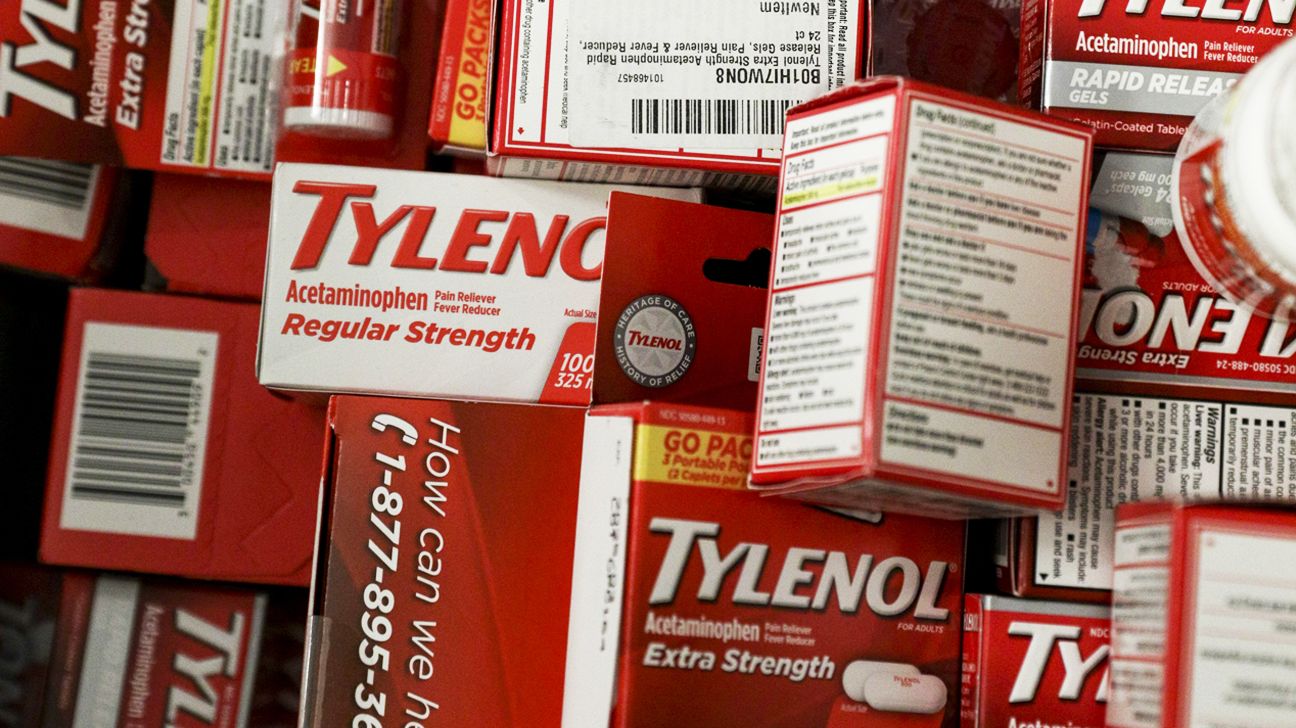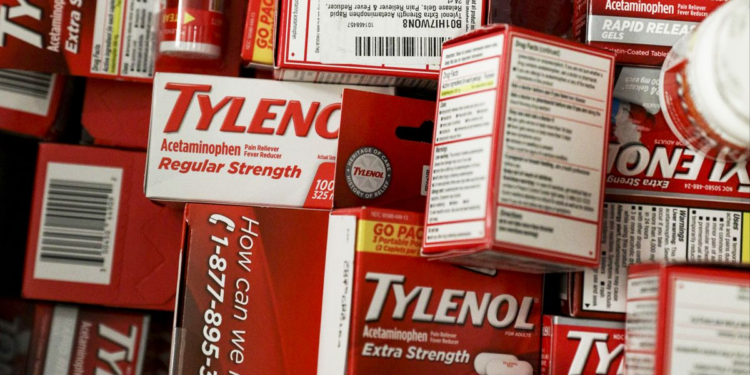
- The Trump administration has linked Tylenol use during pregnancy to autism in children and said the FDA will notify physicians to encourage pregnant people to limit their acetaminophen use.
- The announcement follows a pledge by HHS Health Secretary RFK Jr. to determine the cause of autism by September.
- The Tylenol-autism theory is based on a recent research review that determined an association, but most studies have found no causal link.
- Federal health officials are expected to recommend leucovorin, a drug used to treat cancer and anemia, as a potential therapy for autistic people.
The Trump administration announced on Monday that the Food and Drug Administration (FDA) will begin notifying physicians that Tylenol during pregnancy “can be associated with a very increased risk of autism.”
“They are strongly recommending that women limit Tylenol use during pregnancy unless medically necessary,” the president said.
Health officials are also expected to highlight leucovorin as a potential therapy for autism, according to The Washington Post. Leucovorin is a form of folate used in cancer and anemia treatments.
At a memorial service for conservative activist Charlie Kirk in Glendale, AZ, on Sunday, the president had teased the autism announcement and told reporters that Tylenol is “a very big factor” driving autism rates.
In a media briefing earlier on Monday, White House press secretary Karoline Leavitt said that members of the press should listen to Trump’s announcement with “some critical thinking skills and with some open ears,” NBC reported.
As part of an ongoing effort to address concerns over rising autism rates, Health and Human Services (HHS) Secretary Robert F. Kennedy Jr. had vowed to find the “cause” of autism by September. On Monday, the president thanked the Health Secretary for bringing the issue “to the forefront of American politics.”
When the autism-vaccine link was widely debunked, Kennedy set his sights on a new suspected cause of autism: Tylenol use during pregnancy. A recent research review had suggested a link between prenatal Tylenol use and autism in children, and ignited a safety debate over a longstanding recommendation.
Following publication of the review, an exclusive in The Wall Street Journal revealed that the HHS, under Kennedy’s direction, would release a report detailing Tylenol as a cause of autism. As a consequence of the WSJ report, the stock for Kenvue, Tylenol’s manufacturer, fell by more than 9%.
Still, the Tylenol-autism theory lacks sufficient high quality scientific evidence, and a majority of studies have found no causal link.
The FDA and American College of Obstetricians and Gynecologists (ACOG) maintain that acetaminophen, the active ingredient in Tylenol, is safe during pregnancy.
“Pregnant patients should not be frightened away from the many benefits of acetaminophen, which is safe and one of the few options pregnant people have for relief,” Christopher Zahn, MD, ACOG Chief of Clinical Practice, wrote in a Facebook post earlier this month.
Tylenol is the only safe option for pain relief during pregnancy, and untreated fever carries heightened risks of neural tube defects. Here’s what you need to know.
The Tylenol-autism link entered the spotlight after a recent research review in
The Harvard-Mount Sinai review of 46 studies found a higher chance of autism and ADHD in children with prenatal exposure to acetaminophen.
This review includes a
What’s more, even higher doses of acetaminophen during pregnancy showed no effects on neurodevelopment when those doses were properly controlled.
There’s also a confounding issue in that mothers who took Tylenol during pregnancy had higher rates of infections, chronic pain, psychiatric conditions, and existing neurological conditions like ADHD and autism.
Additionally, the findings point to an association rather than causation, warranting further investigation.
“Studies like this are not proving anything other than an association,” said Danelle Fisher, MD, FAAP, board certified pediatrician at Providence Saint John’s Health Center in Santa Monica, CA, who wasn’t involved in the review.
“The timeliness of taking acetaminophen while pregnant does not mean that every woman who takes it will have a child with autism,” Fisher noted.
“Put another way, an association may be present between pregnant women who eat ice cream during pregnancy and have a child with autism. Does the eating of ice cream cause autism? No, but since it occurred during pregnancy, one could posit an association. There is no proof that acetaminophen causes autism, period,” she said.
Lastly, the senior author of the recent review served as an expert witness for plaintiffs in litigation surrounding acetaminophen, suggesting a possible conflict of interest.
Autism is a neurological condition affecting communication and behavior. The Centers for Disease Control and Prevention (CDC) estimates that autism currently affects around
Autism rates have increased significantly in recent years, but the causes of the developmental disorder are multifactorial.
Additionally, autism rates are likely rising due to improved awareness and screening and broadened diagnostic criteria.
“Autism is a complex spectrum of disorders, which largely [has] a genetic basis,” Fisher said. “While the medical community is discovering more genetic links and parental factors, including parental age and even some environmental causes, there is no one cause of autism.”
Folate has also emerged as a potential factor in autism. Research has suggested that some people on the autism spectrum have metabolic anomalies, reducing the amount of folate that reaches the brain.
Leucovorin, a form of vitamin B9 (folate) also known as folinic acid, as a treatment for autism, could improve this metabolic anomaly. The drug, typically used in cancer and anemia treatment, is sometimes prescribed off-label as an autism therapy for this purpose.
As the Autism Science Foundation has stated on this link, “this science is still in very early stages, and more studies are necessary before a definitive conclusion can be reached.”
Despite that, leucovorin shows promise as a therapy for autism spectrum disorder (ASD); however, it may be too soon before it’s recommended as a treatment for the broader population.
“Leucovorin has been studied on a small scale with some behavioral improvements in children with autism, but no large-scale studies have demonstrated a consistent finding. This may be an important area for future research, but the science is not yet well established,” Fisher noted.
And based on the current evidence, it’s unwise to recommend against acetaminophen during pregnancy.
Tylenol is widely regarded as safe, and there is no link between acetaminophen use, neural tube defects, and autism.
“Every time the government disregards the scientific method and states untrue things about medical issues, they are playing on fear,” Fisher said. “It is time to go back to the science… for vaccines, medical treatments, and recommendations.”
Source link : https://www.healthline.com/health-news/tylenol-autism-link-trump-administration
Author :
Publish date : 2025-09-22 14:36:28
Copyright for syndicated content belongs to the linked Source.






